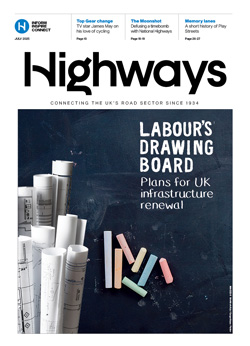A trial of an autonomous shuttle bus service in real traffic conditions is being planned at the National University of Singapore’s Kent Ridge campus – with a view towards a commercial roll-out if successful.
The year-long pilot involves ComfortDelGro, Inchcape Singapore, NUS and Toulouse-headquartered EasyMile Pte Ltd and will get underway next March.
It will be carried out using the EasyMile EZ10 autonomous shuttle which will be funded by Inchcape Singapore and operated by ComfortDelGro’s wholly-owned subsidiary, ComfortDelGro Bus Pte Ltd. The shuttle, which has a total carrying capacity of 15 passengers, will run along a one mile (1.6 km) route in NUS between Heng Mui Keng Terrace and Business Link.
The partners say the trial of the autonomous shuttle bus service – the first of its kind in Singapore by a transport operator – is significant because it will be operating in real mixed traffic conditions, alongside regular buses, cars and motorcycles, while another significant note is that it will rely on its own internal array of software and hardware technologies for its navigation on the roads, without any assistance of external infrastructure. A Safety Engineer will be on board during the trial to ensure safe operation of the vehicle, as well as to provide engineering expertise.
The initial stage of the trial will be focussed on collecting data for its mapping and navigation systems, and would not be open for passenger service. Once the trial management team is satisfied that the shuttle is ready for commuter trials, passengers will be able to start boarding the vehicle.
The EasyMile EZ10 autonomous shuttle runs entirely on electricity and benefits from the latest in Autonomous Vehicle (AV) technology combining robotics and artificial intelligence, to operate and navigate on existing roadways with no additional infrastructure required. It has also an in-built access ramp for mobility challenged passengers.
A similar trial is currently running in Forus, Norway, where the EZ10 autonomous shuttle is running on a 1.2 km route on regular intervals in an area consisting of 3,500 companies and 40,000 employees. EZ10 AVs were one of the first ones to be deployed successfully in mixed traffic in France, Germany, Norway, Australia, Japan and California.





